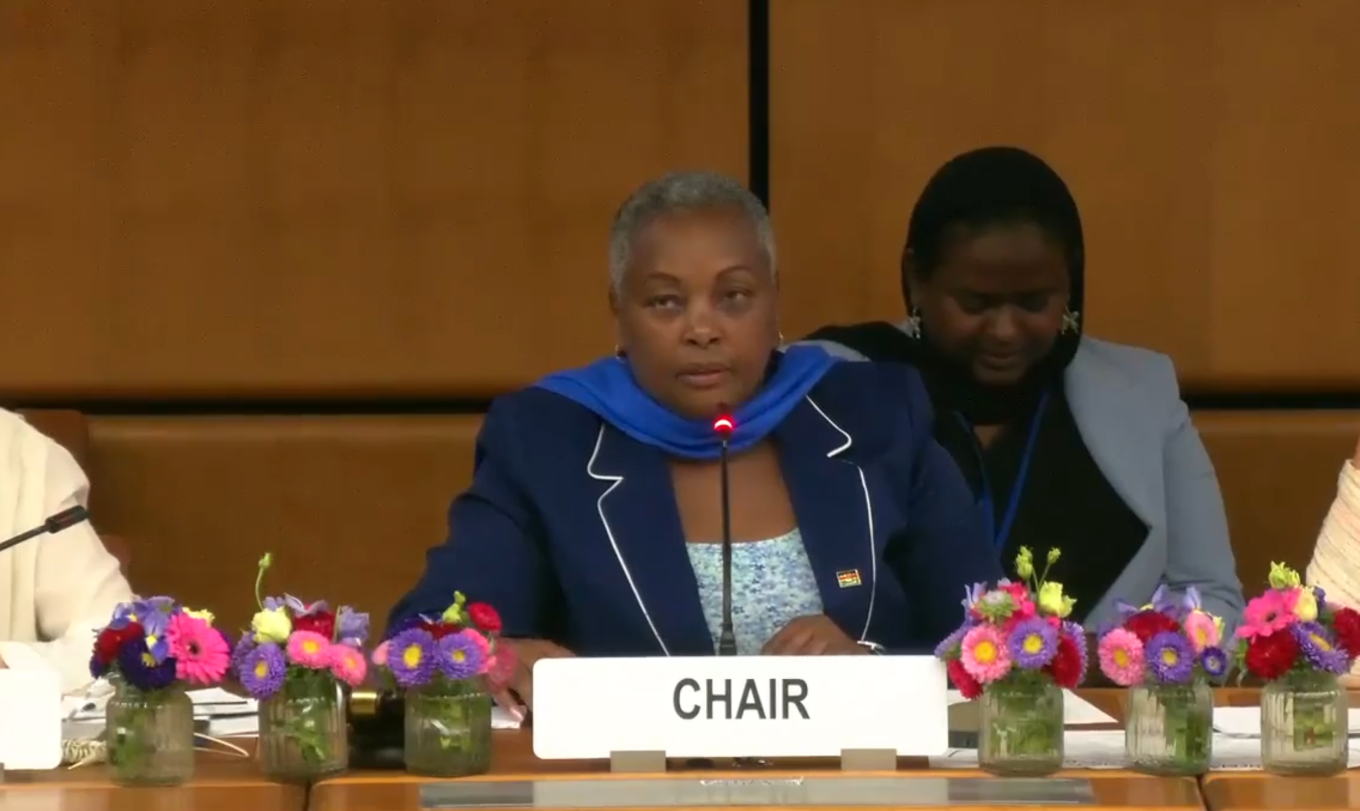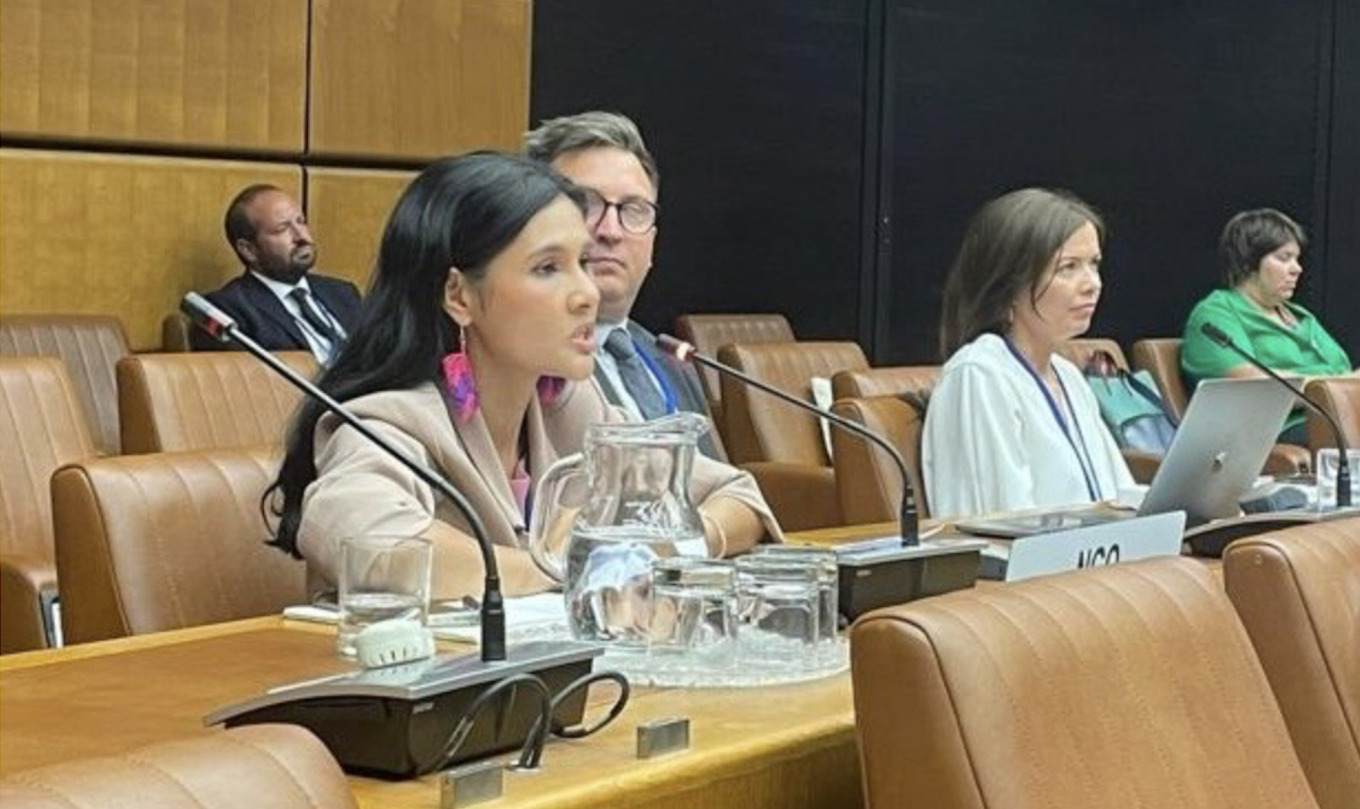
Insights
When the Rule of Law Is for Some, but Not All: Combatting Queer Exclusion from Criminal Justice
Region(s)
TOPIC(s)
Type
Commentary
Author(s)
Publish Date
November 27, 2023
Share
What happens when a group of people are deprived of access to their country’s justice system on the basis of their identities?
In September 2023, Outright International participated, at the invitation of the UN Commission on Crime Prevention and Criminal Justice (CCPCJ), in the Commission’s two-day thematic discussions on implementing the 2021 Kyoto Declaration on Advancing Crime Prevention, Criminal Justice, and the Rule of Law. The Kyoto Declaration, adopted in 2021, represents an international commitment to coordinate and intensify crime prevention efforts within the context of social and economic development. It addresses many key issues that align with Outright’s commitment to better lives for lesbian, gay, bisexual, trans, intersex, and queer (LGBTIQ) people everywhere, including an emphasis on root causes of crime, evidence-based crime prevention, mainstreaming a gender perspective, advancing the criminal justice system, and strengthening the rule of law.
Like it or not, queer people’s lives worldwide are entangled with criminal legal systems. 62 UN member states criminalize us, and in most countries, when we are victims of crimes, biases related to our sexual orientations, gender identities and expressions, and sex characteristics prevent us from accessing justice. For these reasons, when the international community convened to discuss crime prevention and the rule of law, Outright wanted a seat at the table.
The convening in Vienna laid bare stark differences among UN member states on what ought to be a matter of straightforward agreement: that states must make their criminal legal systems accessible to everyone, regardless of gender or sexuality.


Prior to the convening, the Commission’s Secretariat prepared a background note on “promoting the rule of law.” The background note highlighted challenges to accessing justice, including systemic discrimination. It cited discussions at a UN General Assembly session in June 2023 at which speakers called for “addressing structural and historical barriers and discrimination against racial and ethnic minorities, indigenous peoples, people of diverse sexual orientation and gender identity, and people with disabilities.” The background note proposed discussion questions for states to consider: “What innovative, data-driven and evidence-based strategies and interventions have been effective in breaking the cycle of discrimination and ensuring equal treatment before the law? What concrete steps can Member States take to build representative criminal justice institutions that address discrimination, promote inclusivity in the workplace, and foster trust between communities and the criminal justice system?”
Outright went to Vienna to engage in constructive discussion on these topics and to tell the hidden stories of all those who fall through the cracks in unequal, queer-phobic criminal legal systems worldwide. But some states sought to shut down the discussion of queer people’s experiences with criminal justice altogether.
Pakistan, Egypt, Turkey, Iran, Russia, and Sudan all objected, as a matter of principle, to the mention of sexual orientation and gender identity in the background document. Pakistan described the inclusion of sexual orientation and gender identity as “divisive and unacceptable.” At the same time,Sudan complained that the background paper “only reflected the one side of the story, not other views.”
Other member states, such as Colombia, Mexico, the U.S., the U.K., Australia, and the EU, countered these positions. Mexico pointed out that the Secretariat of the Commission “has the mandate to address issues that involve everyone.”
When Outright took the floor, we pointed out that highlighting LGBTIQ people’s lack of access to equal treatment before the law is not a “view” or “one side of the story.” It is a factual description of the lived experiences of queer people.
Throughout the world, including in the 62 countries that persistently criminalize consensual same-sex relations or gender diversity, legal and social structures strip individuals of their dignity and equality, building insurmountable barriers to accessing justice.
Decriminalization of same-sex intimacy and gender diversity must be a starting point in achieving the rule of law and access to justice. An arduous journey to create safer, enabling environments must follow. These are pivotal aspects of the “rule of law.” True equality before the law remains elusive without these fundamental elements, and a chain of mistrust will remain in its stead.
Across the globe, LGBTIQ community members grapple with the constant threat of arrest, detention, and abuse simply for existing. Laws are weaponized to harass, stalk, and invade the homes of LGBTIQ individuals, dissuading them from reporting crimes. Even in countries that do not explicitly criminalize queerness, stigma, and prejudice are wielded as weapons to shield perpetrators from accountability and justice.
For example, in Ghana, where Parliament is currently contemplating an anti-LGBTIQ bill that would criminalize simply existing as a queer person, LGBTIQ assault victims can’t count on the police for support. When six men beat up Soloman, a transgender woman, in 2021, she went to report the crime. She told Outright: “The police took my statement, but they started asking me, ‘Are you gay? Are you gay? We’re going to lock you!’ I was shivering [with fear]. I left the police station.”
In Sri Lanka, an activist told Outright about the case of a queer person who experienced severe intimate partner violence but was afraid to seek help even from medical institutions because hospitals sometimes report domestic violence cases to the police.
What does the implementation of the Kyoto Declaration look like for LGBTIQ people? There are recent positive examples to draw from.
For countries that criminalize same-sex intimacy, decriminalization is a first step toward access to justice. In October, Mauritius’ Supreme Court repealed its colonial-era sodomy laws. The judges reasoned that as long as the colonial-era law remained in place, “the threat of arrest, prosecution, and conviction… hangs like the sword of Damocles over the heads of homosexual men,” reducing them to “unapprehended felons.”
Advancing access to justice and the rule of law can also include explicitly prohibiting discrimination against marginalized groups by law enforcement officials. In 2022, St. Lucia enacted a domestic violence law that mandates that public officers and service providers are not to treat victims and survivors in a discriminatory manner, including on the grounds of sex, gender, marital status, sexual orientation, and gender identity.
The Kyoto Declaration commits UN member states to “ensure equal access to justice and application of the law to all, including vulnerable members of society.” But as long as states hostile to sexual and gender diversity argue that these topics have no place in a discussion of criminal justice, LGBTIQ people will continue to fall through the gaping cracks in the foundation of the rule of law and equality. Until discriminatory laws are abolished and the heavy shroud of stigma is lifted, LGBTIQ individuals will continue to pay the price for justice with their lives, freedoms, and their dignity. States should recognize both the human rights imperative and the pragmatic necessity to demand a world where the "rule of law" applies to all.

Take Action
When you support our research, you support a growing global movement and celebrate LGBTIQ lives everywhere.
Donate Now